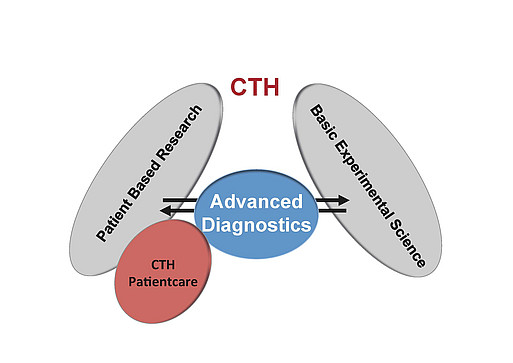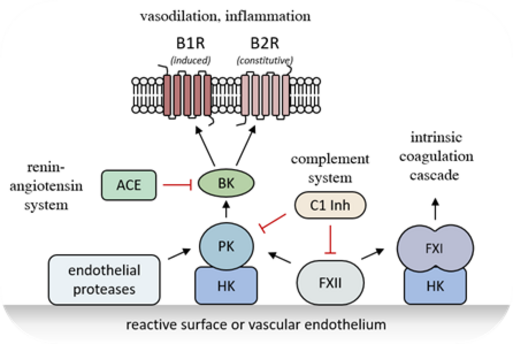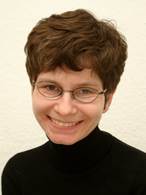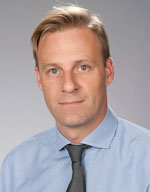Platform 5
Advanced Diagnostics
The 'Advanced Diagnostics' platform aims to establish innovative diagnostic concepts at the CTH. To this end, we are developing new diagnostic tools that bridge the gap between basic science, clinical research, routine diagnostics and patient care. The focus is on applications enabling the translation of research into clinical practice (bench-to-bedside) as well as the feedback of clinical observations into basic research (bedside-to-bench). Thus, this platform serves as a central link between basic research and patient-oriented research and is firmly embedded in the CTH as an integrated centre for clinical and research.
Particular attention is paid to the molecular analysis of genes that are important for thrombosis and haemostasis. The core of the platform is the sequencing of selected genes using next-generation sequencing (NGS). This gene panel comprises 92 genes with known diagnostic relevance for thrombosis and haemostasis as well as around 300 other genes that are associated with these processes and are of scientific interest to the members of the CTH. The NGS panel is flexible and modular, so that it can be expanded with additional modules if required. This enables customisation to the specific requirements of future cooperation partners, which can be supplemented by additional methods such as whole exome sequencing, Sanger sequencing, pyrosequencing, MLPA (detection of large deletions and insertions), fragment analysis using capillary electrophoresis (for repeat or homopolymer regions), ddPCR (for sensitive allele quantification or quantitative expression analysis) and splice investigations (with and without NMD inhibition; readout: ddPCR, nanopore sequencing).
A further focus of this platform is the analysis of alterations in non-coding sequence regions that predispose to the occurrence of thrombosis or bleeding. This is of particular interest because a significant proportion of thrombosis and hemostasis disorders do not show significant changes in coding regions. In particular, we investigate the dysregulation of hemostatic components by non-coding RNAs (such as miRNAs, lncRNAs) or RNA-binding proteins. For analysis, we develop and use high-throughput interactome analyzes (miTRAP, (crosslinking) immunoprecipitation (CLIP)) and high-resolution transcriptome analyzes (TRENDseq). With these activities, the platform is internationally anchored in the ISTH SSC Subcommittee on Genomics in Thrombosis and Hemostasis.
To initiate a cooperative project please contact Prof. Heidi Rossmann (Tel. 17-7297), A. Adenäuer (Tel. 17-6904) or Prof. Danckwardt (Tel. 17-6041 or 17-2632)
Platform project

Further projects using the platform's expertise
- Prof. Danckwardt: Genomics in Thrombosis and Hemostasis (GinTH) ISTH SSC
- Prof Pierre Morange, Prof. David Alexandre Trégouët, Prof. Danckwardt: non-coding determinants in T&H
- A. Adenäuer, Prof. Schmaier (Case Western Reserve University and UH Cleveland Medical Center), Prof. Lämmle, Prof. Rossmann: Molecular characterisation of historical samples with defects in the kallikrein kininogen system
- Dr. Häuser, Dr. Falter, Dr. Mittler, Dr. Radsak, Dr. Sasca, Prof. Rossmann: Development of ddPCR-based methods for the sensitive quantification of chimerism after bone marrow transplantation and solid organ transplantation from gDNA or cfDNA
- Dr. Häuser, A. Adenäuer, Prof. Rossmann: Characterisation of splice variants to complement modern molecular genetic diagnostics
- Dr. Häuser, A. Adenäuer, PD Dr. O. Beck, Prof. Rossmann, Prof. Lämmle: Importance of molecular genetic tests in the diagnosis of spherocytosis
- S. Popp, Dr. Nitsche, Prof. Rossmann: Integration of functional and molecular genetic diagnostics in primary ciliary dyskinesia (PCD)
- Prof. Vanhoorelbeke (Universität Leuven, Belgien), Prof. Lämmle, Dr. Falter, Prof. Rossmann: Significance of the ADAMTS13 conformation for the pathogenesis of TTP
- Prof. Jurk, A. Adenäuer, Prof. Rossmann: Genetic causes of platelet dysfunction and thrombocythaemia
- Prof. Jurk, Prof. Faber, Prof. Russo, Prof. Rossmann: Patient registry for congenital platelet disorders
- Prof. Lämmle, Dr. v. Auer, Dr. Falter, Prof. Rossmann: Genetic causes and modifiers of TTP (thrombotic thrombocytopenic purpura)
- Prof. Danckwardt, A. Adenäuer, Dr. Häuser, Prof. Rossmann: VWD (von Willebrand disease): Genotype/phenotype ratio
- Dr. Sibbing, Prof. Gori, Prof. Danckwardt, Dr. Wenzel: TROPICAL-ACS (Testing RespOnsiveness To Platelet Inhibition On Chronic AntiplateLet treatment For Acute Coronary Syndromes); contribution of polymorphisms to vascular and platelet function
- Prof. Gori, Prof. Danckwardt: Prevention of in-stent thrombosis
- Dr. Schmidgen, Prof. Gori, Prof. Ruf, Prof. Steinbrink, Prof. Danckwardt: Significance of signalling pathways in cutaneous inflammation
- Dr. Kleis-Fischer, Prof. Grabbe, Prof. Danckwardt: Influence of genetics on wound healing
- This platform is part of the 'Shared Expertise' of the DZHK ('Plattformlobor CTH' - shared expertise SE076)
Scientific Platform Coordiantors

MD Heidi Rossmann
Platform-Coordinator and senior physician at the Institute of Clinical Chemistry and Laboratory Medicine

Professor Sven Danckwardt, MD
Professorship "Experimental Hemostasis and Laboratory Medicine", DZHK Scientist
References
- Vacik Díaz R, Munsch G, Iglesias MJ, Pallares Robles A, Ibrahim-Kosta M, Nourse J, Khan E, Castoldi E, Saut N, Boland A, Germain M, Deleuze JF, Odeberg J, Morange PE, Danckwardt S, Tregouët DA, Goumidi L. Plasma levels of complement components C5 and C9 are associated with thrombin generation. J Thromb Haemost. 2024 Sep;22(9):2531-2542.
- De Waele L, Sakai K, Mancini I, Sinkovits G, Falter T, Inoue T, Agosti P, Rossmann H, Von Auer C, Tersteeg C, De Meyer SF, Joly BS, Veyradier A, Coppo P, Fijnheer R, Peyvandi F, Prohászka Z, Lämmle B, Vanhoorelbeke K. Open ADAMTS-13 conformation index predicts earlier relapse in immune-mediated thrombotic thrombocytopenic purpura. J Thromb Haemost. 2024 Feb;22(2):493-502.
- Falter T, Rossmann H, de Waele L, Dekimpe C, von Auer C, Müller-Calleja N, Häuser F, Degreif A, Marandiuc D, Messmer X, Sprinzl M, Lackner KJ, Jurk K, Vanhoorelbeke K, Lämmle B. A novel von Willebrand factor multimer ratio as marker of disease activity in thrombotic thrombocytopenic purpura. Blood Adv. 2023 Sep 12;7(17):5091-5102.
- Häuser F, Mittler J, Hantal MS, Greulich L, Hermanns M, Shrestha A, Kriege O, Falter T, Immel UD, Herold S, Schuch B, Lackner KJ, Rossmann H, Radsak M. One fits all: a highly sensitive combined ddPCR/pyrosequencing system for the quantification of microchimerism after hematopoietic and solid organ transplantation. Clin Chem Lab Med. 2023 May 11;61(11):1994-2001.
- Danckwardt S, Trégouët DA, Castoldi E. Post-transcriptional control of haemostatic genes: mechanisms and emerging therapeutic concepts in thrombo-inflammatory disorders. Cardiovasc Res. 2023 Jul 6;119(8):1624-1640. Erratum in: Cardiovasc Res. 2023 Aug 19;119(10):2015.
- Adenaeuer A, Barco S, Trinchero A, Krutmann S, Nazir HF, Ambaglio C, Rocco V, Pancione Y, Tomao L, Ruiz-Sáez A, Echenagucia M, Alesci S, Sollfrank S, Ezigbo ED, Häuser F, Lackner KJ, Lämmle B, Rossmann H. Severe high-molecular-weight kininogen deficiency: clinical characteristics, deficiency-causing KNG1 variants, and estimated prevalence. J Thromb Haemost. 2023 Feb;21(2):237-254.
- Jurk K, Adenaeuer A, Sollfrank S, Groß K, Häuser F, Czwalinna A, Erkel J, Fritsch N, Marandiuc D, Schaller M, Lackner KJ, Rossmann H, Bergmann F. Novel GATA1 Variant Causing a Bleeding Phenotype Associated with Combined Platelet α-/δ-Storage Pool Deficiency and Mild Dyserythropoiesis Modified by a SLC4A1 Variant. Cells. 2022 Sep 29;11(19):3071.
- Kangro K, Roose E, Joly BS, Sinkovits G, Falter T, von Auer C, Rossmann H, Reti M, Voorberg J, Prohászka Z, Lämmle B, Coppo P, Veyradier A, De Meyer SF, Männik A, Vanhoorelbeke K. Anti-ADAMTS13 autoantibody profiling in patients with immune-mediated thrombotic thrombocytopenic purpura. Blood Adv. 2021 Sep 14;5(17):3427-3435.
- Nourse J, Danckwardt S. A novel rationale for targeting FXI: Insights from the hemostatic microRNA targetome for emerging anticoagulant strategies. Pharmacol Ther. 2021 Feb;218:107676.
- Ogorodnikov A, Danckwardt S. TRENDseq-A highly multiplexed high throughput RNA 3' end sequencing for mapping alternative polyadenylation. Methods Enzymol. 2021;655:37-72.
- Falter T, Rossmann H, Menge P, Goetje J, Groenwoldt S, Weinmann A, Sivanathan V, Schulz A, Lemmermann NAW, Danckwardt S, Lackner KJ, Galle PR, Scharrer I, Lämmle B, Sprinzl MF. No Evidence for Classic Thrombotic Microangiopathy in COVID-19. J Clin Med. 2021 Feb 9;10(4):671.
- Marini F, Scherzinger D, Danckwardt S. TREND-DB-a transcriptome-wide atlas of the dynamic landscape of alternative polyadenylation. Nucleic Acids Res. 2021 Jan 8;49(D1):D243-D253.
- Ma J, Klemm J, Gerardo-Ramírez M, Frappart L, Castven D, Becker D, Zoch A, Parent R, Bartosch B, Minnich K, Giovannini M, Danckwardt S, Hartmann N, Morrison H, Herrlich P, Marquardt JU, Hartmann M. Cluster of differentiation 44 promotes osteosarcoma progression in mice lacking the tumor suppressor Merlin. Int J Cancer. 2020 Nov 1;147(9):2564-2577.
- Adenaeuer A, Ezigbo ED, Fawzy Nazir H, Barco S, Trinchero A, Laubert-Reh D, Strauch K, Wild PS, Lackner KJ, Lämmle B, Rossmann H. c.451dupT in KLKB1 is common in Nigerians, confirming a higher prevalence of severe prekallikrein deficiency in Africans compared to Europeans. J Thromb Haemost. 2021 Jan;19(1):147-152.
- Roose E, Schelpe AS, Tellier E, Sinkovits G, Joly BS, Dekimpe C, Kaplanski G, Le Besnerais M, Mancini I, Falter T, Von Auer C, Feys HB, Reti M, Rossmann H, Vandenbulcke A, Pareyn I, Voorberg J, Greinacher A, Benhamou Y, Deckmyn H, Fijnheer R, Prohászka Z, Peyvandi F, Lämmle B, Coppo P, De Meyer SF, Veyradier A, Vanhoorelbeke K. Open ADAMTS13, induced by antibodies, is a biomarker for subclinical immune-mediated thrombotic thrombocytopenic purpura. Blood. 2020 Jul 16;136(3):353-361.
- Barco S, Sollfrank S, Trinchero A, Adenaeuer A, Abolghasemi H, Conti L, Häuser F, Kremer Hovinga JA, Lackner KJ, Loewecke F, Miloni E, Vazifeh Shiran N, Tomao L, Wuillemin WA, Zieger B, Lämmle B, Rossmann H. Severe plasma prekallikrein deficiency: Clinical characteristics, novel KLKB1 mutations, and estimated prevalence. J Thromb Haemost. 2020 Jul;18(7):1598-1617.
- Schaupp L, Muth S, Rogell L, Kofoed-Branzk M, Melchior F, Lienenklaus S, Ganal-Vonarburg SC, Klein M, Guendel F, Hain T, Schütze K, Grundmann U, Schmitt V, Dorsch M, Spanier J, Larsen PK, Schwanz T, Jäckel S, Reinhardt C, Bopp T, Danckwardt S, Mahnke K, Heinz GA, Mashreghi MF, Durek P, Kalinke U, Kretz O, Huber TB, Weiss S, Wilhelm C, Macpherson AJ, Schild H, Diefenbach A, Probst HC. Microbiota-Induced Type I Interferons Instruct a Poised Basal State of Dendritic Cells. Cell. 2020 May 28;181(5):1080-1096.e19.
- Ogorodnikov A, Levin M, Tattikota S, Tokalov S, Hoque M, Scherzinger D, Marini F, Poetsch A, Binder H, Macher-Göppinger S, Probst HC, Tian B, Schaefer M, Lackner KJ, Westermann F, Danckwardt S. Transcriptome 3'end organization by PCF11 links alternative polyadenylation to formation and neuronal differentiation of neuroblastoma. Nat Commun. 2018 Dec 14;9(1):5331.
- Nourse J, Braun J, Lackner K, Hüttelmaier S, Danckwardt S. Large-scale identification of functional microRNA targeting reveals cooperative regulation of the hemostatic system. J Thromb Haemost. 2018 Nov;16(11):2233-2245.
- Kargapolova Y, Levin M, Lackner K, Danckwardt S. sCLIP-an integrated platform to study RNA-protein interactomes in biomedical research: identification of CSTF2tau in alternative processing of small nuclear RNAs. Nucleic Acids Res. 2017 Jun 2;45(10):6074-6086.